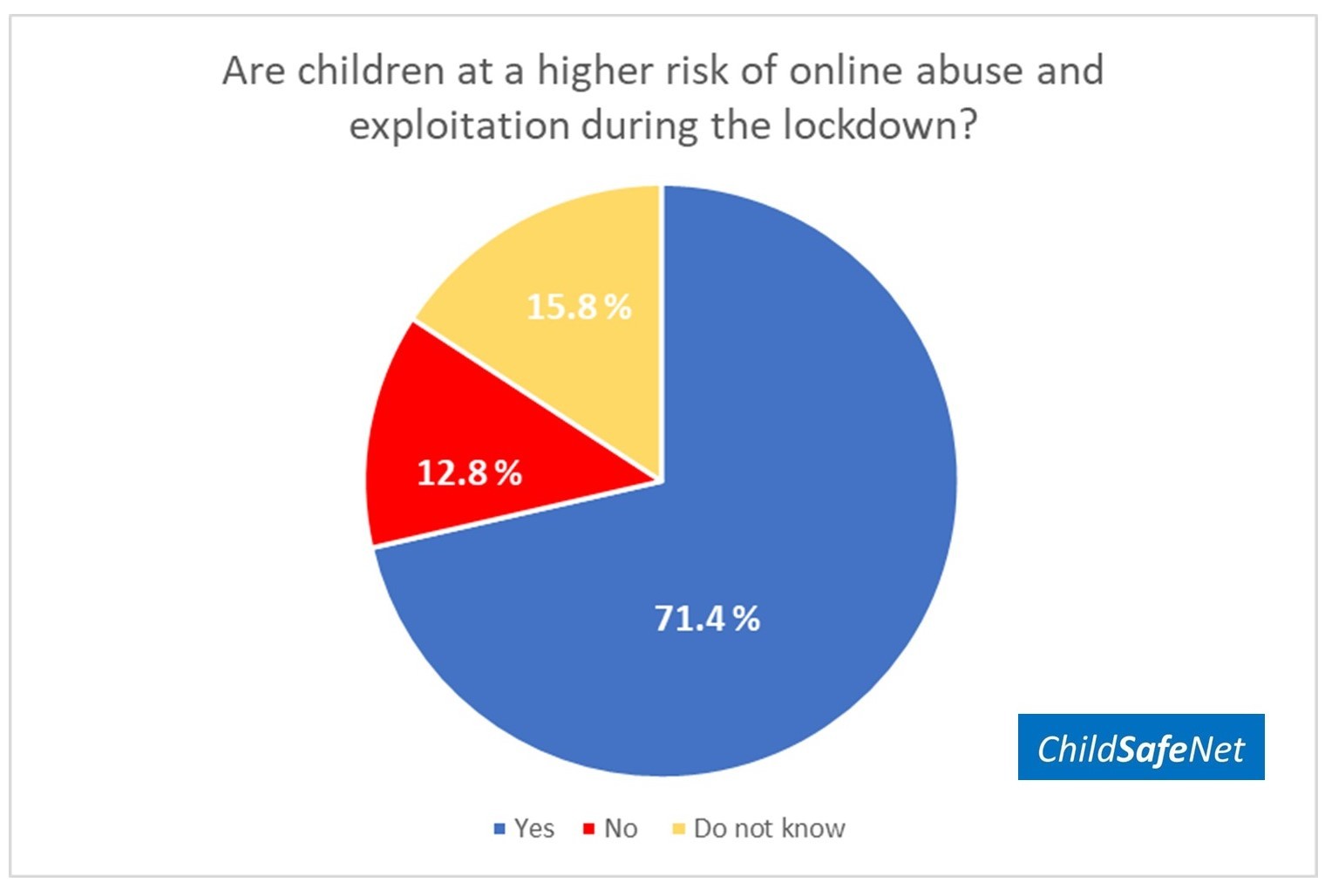
Survey on Changed Online Behaviour During COVID-19 Lockdown in Nepal
ChildSafeNet conducted a quick survey to understand cyber safety and online behaviour of children and young people as well as their parents during the lockdown. The survey findings will help ChildSafeNet and partners to design and implement cyber safety programmes, particularly during the lockdown period.

The survey was conducted in all provinces of the country using online Google forms, distributed through social media platforms. The survey, self-administered by respondents started on 17 April 2020. Results of this report includes responses collected from 17 to 21 April 2020. The survey was conducted with young children, young people and adults. Since the behaviour of adults may affect children in many ways, the survey also collected information on adults' online behaviour.
In order to make the survey anonymous, no private information of respondents was collected. A total of 1,228 respondents (648 male, 576 and 4 other) had participated in the survey.

Key Recommendations:
Cyber safety awareness sessions need to be conducted for children, young people and parents
through online/virtual awareness activities through social media and video conferencing sessions.
Video conferencing workshops on 'Parenting in the Digital Age' can help to equip parents with
knowledge and skills to keep children and young people safe online. The workshops will help to
provide guidance to parents on reducing their own screen time, learn about cyber safety and lead by
example to protect children and young people from online harms.
Educate children, young people and parents on the positive use of the internet & provide them
information on sites and apps suitable for children. Inform them about useful and suitable sites
according to their age and requirements.
Develop simple and easy cyber safety resources in Nepali and local languages for dissemination
through online media, including, but not limited to social media.
Operate a dedicated online helpline to provide tips, advice and support to people who experience
online harms or at risk; refer to support services - police, psychologists, lawyers, social workers, etc.
Strengthen law enforcement to report online abuses and make reporting accessible throughout the
country.
Advocate for more financial and technical resources from the government, ICT companies and other
duty-bearers to make the internet safer for children, young people and everyone.
Conclusion
According to the survey findings, children and young people could be at a higher risk of internet
addiction, gaming addiction and exposure to adult contents. They could also be at a higher risk of online
sexual abuse and exploitation. Although the government banned pornographic sites in Nepal, more than
41 per cent respondents, including children and young people said they had visited such sites. Issues like
this also need to be addressed.
Detailed and thematic researches are required to develop in-depth knowledgebase to address the issue
of online safety of children and young people during and after the lockdown period.
About ChildSafeNet
ChildSafeNet is a non-governmental organization, established with a mission to make the digital
technology safer for children and young people. We work to raise awareness on safer use of the Internet
and digital devices to protect children and young people from Internet addiction, online sexual abuse
and exploitation, cyber-bullying, phishing, gaming addiction and to promote digital literacy.
- ChildSafeNet
Jawalakhel, Lalitpur, Nepal















